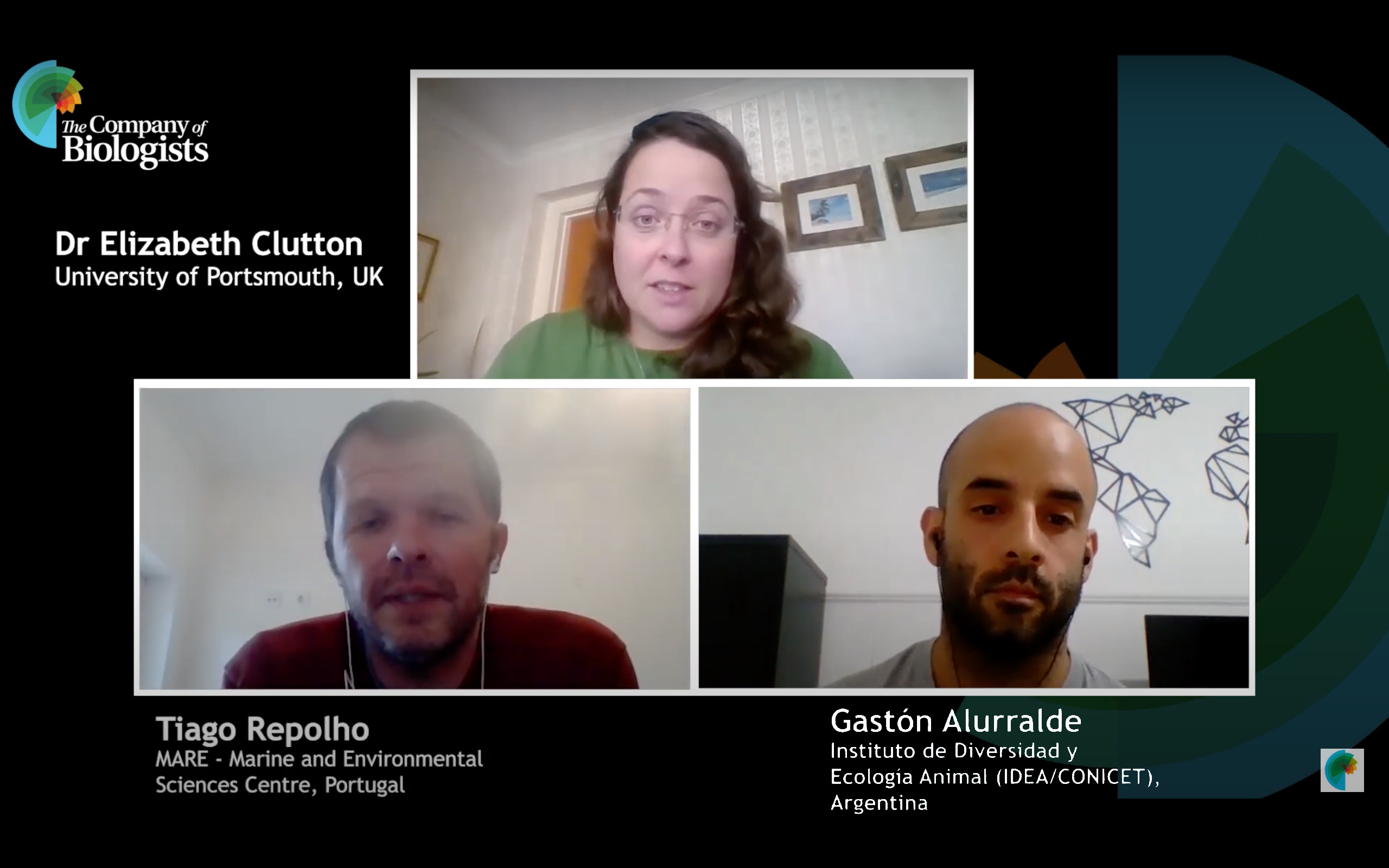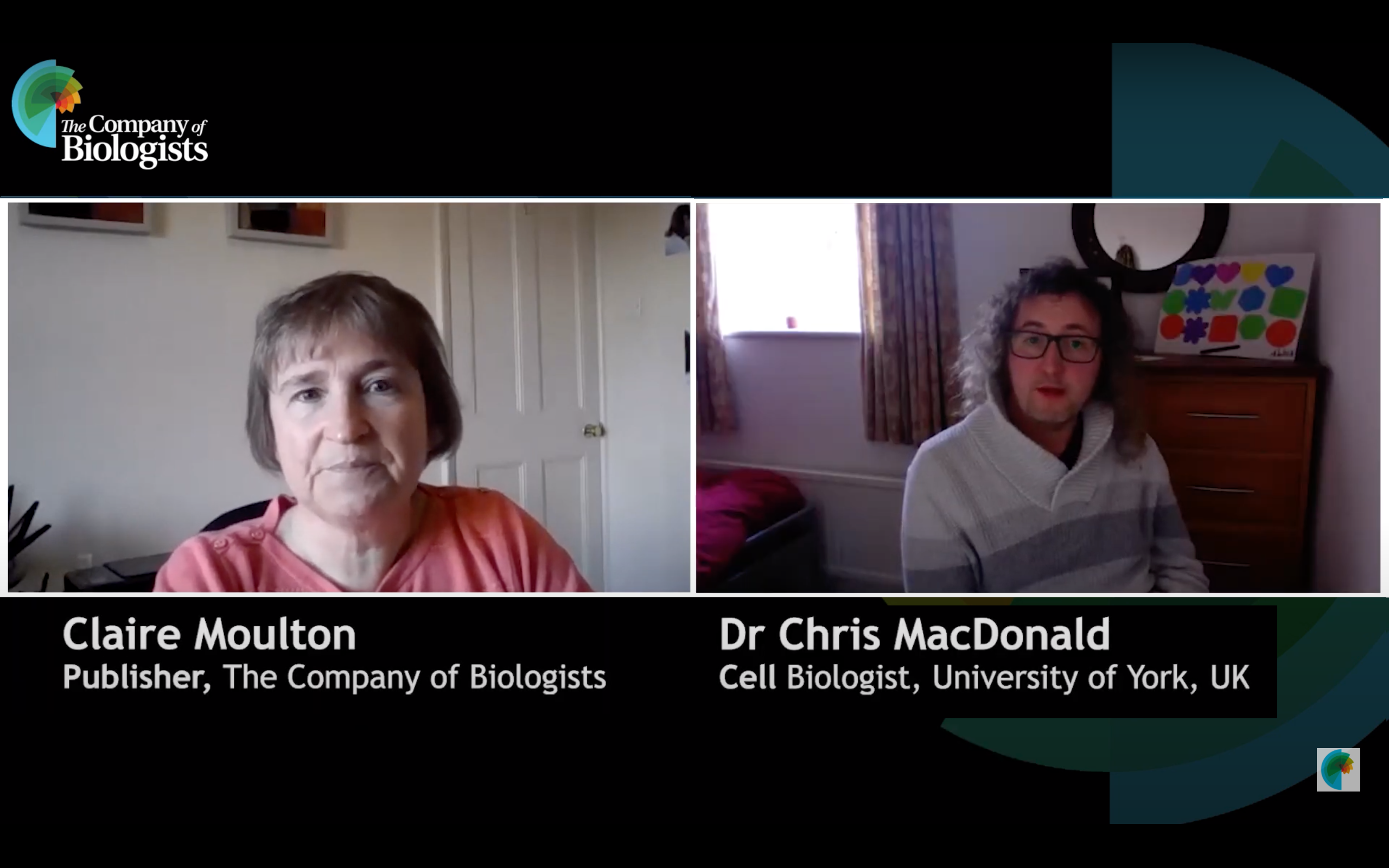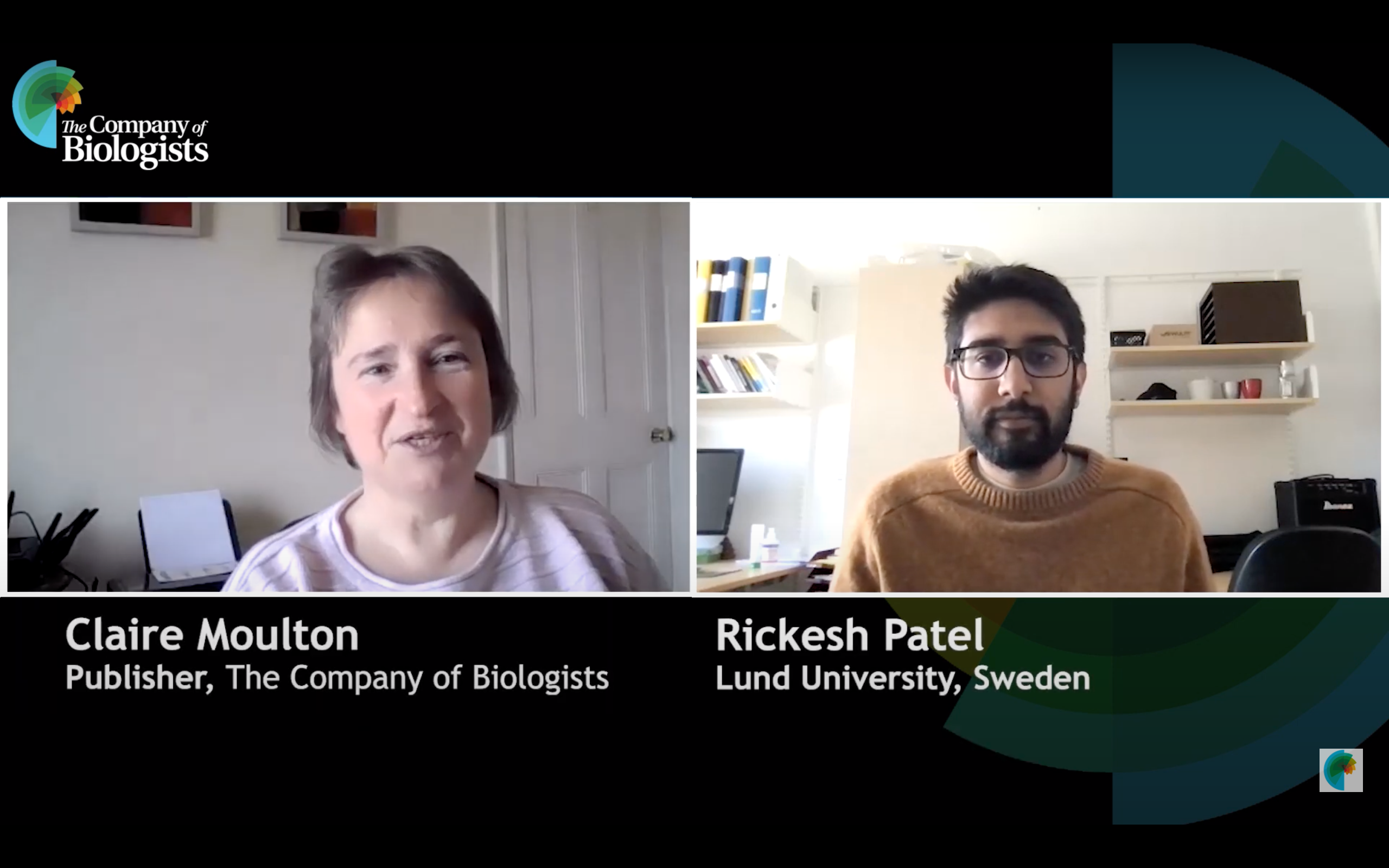APC-free Open Access publishing – what do authors say?
The following authors talk about what it meant to them to be able to publish their articles immediately Open Access without charge as a result of the Read & Publish initiative:
- Dr Elizabeth Clutton (University of Portsmouth, UK)
- Tiago Repolho (MARE, Portugal)
- Dr Chris MacDonald (University of York, UK)
- Gaston Alurralde (IDEA/CONICET, Argentina)
- Rickesh Patel (Lund University, Sweden)
- James Briscoe (The Francis Crick Institute, UK and Editor-in-Chief, Development)
Transcript
Dr Elizabeth Clutton: So we're really grateful to the Journal of Experimental Biology, for accepting our paper, and because of the Read & Publish agreement in place, we didn't have to pay any publishing fees, which was just absolutely fantastic, and it enabled us to then get our work out in the Journal of Experimental Biology.
Tiago Repolho: With Open Access, it just means everything.So it's open for everyone, either our peers, public, project stakeholders.So it makes our science reach a broader level. It's open, accessible to everyone.
Dr Chris MacDonald: This new drive for Open Access, I think, is a very positive thing, stopping research being hidden from people. I do think it's particularly helpful for early-career researchers to do that because it helps establish the techniques you use, the research you're doing.
Gaston Alurralde: Being able to publish Open Access, and for free, is a really good achievement. At least for me, that I work in a third world country, and usually we are restricted to access to many different journals and research. So that's really nice to be able to publish for free and Open Access, to bring our research to everyone.
Rickesh Patel: It's really nice to know that my article which is Open Access will be freely available to anyone that wants that information.
James Briscoe: Well, I think it's fantastic for authors. It means that immediately you publish your work it's accessible to everyone. And as a reader, it means you have access to that content,whether you're accessing it from your institution or from home or when you're travelling. So it just makes the work much more available, much more freely available, immediately it's published.










